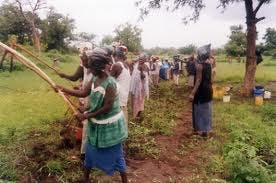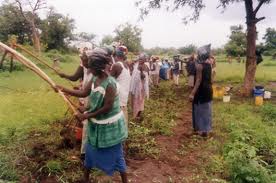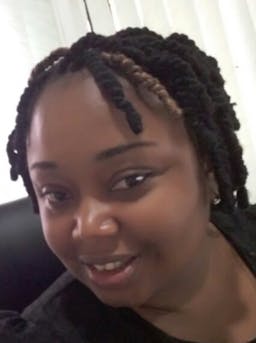UNHINGED - Women, property rights, and control over natural resources in Nigeria
Jan 21, 2015
Story


Nigeria like most African countries is patrilineal in nature with few matrilineal communities such as Nembe in Bayelsa State. Yet, even in matrilineal societies women's property rights is hardly attainable. On control over natural resources, women have no say whatsoever in that matter.
Women even those educated in many circumstances are expected to be seen and not heard. Most men in my country will say that ''the place of a woman is in the kitchen''.
Women have no control over property as she does not inherit land or houses like her male counterparts. Though there are no written laws to this effect, the unwritten traditional laws tend to hold women hostage and unhinges them from the land they are a part of.
Women are given land especially in partilineal societies only to farm on. They own the crops (the friut of their harvest) but yet cannot own the land. In communities like this, when land is being shared to members of the community, the woman has no share. At time I wonder, is she not a member of the community?
Nigeria has abundant natural resources such as coal, crude oil, natural gas, amongst others. The Nigerian woman has no control over natural resources. The only natural resources she has control over are the fruits of the crops she planted.
The only thing constant in life is change. I speak for the Nigerian woman who feels oppressed and cannot voice out in her community/country for fear of what people will say.
I speak for the growing girl child in my country.
Women are human beings and demand equal share in property rights and control over natural resources as the brunt of oil spillage affects women and girls even more.
My recommendation to world leaders at Rio+20 is to ensure that governments adopt and implement policy and legislative changes that recognize and promote women’s contributions in relation to this issue. Laws should be enacted that enables the women to inherit landand have control over natural resources in her country.
In partnership with the Women’s Environment and Development Organization (WEDO), World Pulse is collecting personal stories outlining women’s experiences and recommendations on sustainable and equitable development for presentation at the Rio +20 United Nations Conference on Sustainable Development.
All stories submitted on our community platform between now and June 3, 2012 will be presented at the Rio+20 Conference. Additionally, selected entries will be published in World Pulse’s digital magazine and distributed widely to international media partners.




